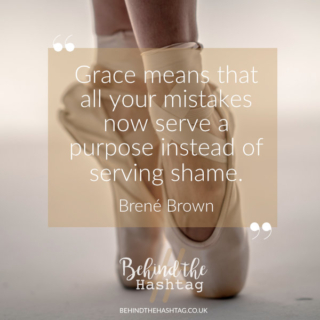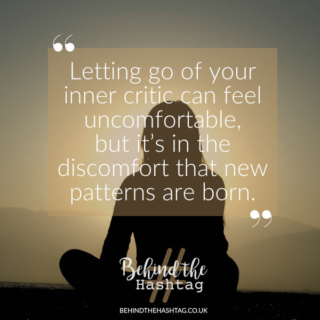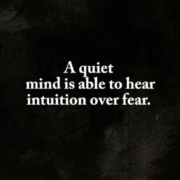I’ve recently noticed how dull jewellery becomes if it’s not worn and is just stuck in a box.
I finally had my first outing recently to celebrate my parent’s anniversary. Having an excuse to get dressed up, I thought I’d give my now very dull jewellery a clean. I didn’t expect such a minor task to provide me with such considerable insight!
As I sat in my room with my favourite music on, my aromatherapy mister puffing out stress-reducing oils and with no rush to be anywhere soon, I became totally engrossed in what I was doing. In that moment, I realised I had a sense of wellbeing and happiness, something I hadn’t felt for many months. I caught myself just smiling. My sparkle was emerging along with the sparkle on my rings! I simply hadn’t quite appreciated how “blah” I’d been feeling for so long. It wasn’t just the jewellery that had become dull.
As we emerge from the heaviness of the pandemic, each of us around the world will be at different stages, and I’m acutely aware that too many are still very much in the thick of it. Whether you’re emerging out from under all this or the light at the end of the tunnel still seems a little further away, I want to share something with you which might help you understand how you could be feeling right now or prepare for you something you may feel in the future.
Let’s go back to the “blah” that I mentioned earlier. For many months I’ve been functioning through hectic work schedules and long days across many timezones. Supporting my daughter through her final exams at school – the results critical to the next steps in her life. Helping ageing parents with health challenges and hospital appointments. I have also been trying to do enough housework to avoid my house becoming a bio-hazard zone, all whilst providing sustenance through nutritious meals!!! The “blah”, when not on full adrenalin, has been very real. It felt like the ‘Friday Faceplant’ had re-entered my life again… however, this time it was different. This time I found an explanation.
Adam Grant is an organisational psychologist I’ve come across many times and always really loved his work. This spring, in his recent article, he really NAILED the explanation of what so many of us are experiencing. I have never been sent the same article by so many people, from so many countries, in the space of just a few days… It clearly resonated strongly with them all and with a powerful “Oh my god, this is me!” response. That was my reaction too.
Adam captured so powerfully what many of us were experiencing but didn’t have a name for.
It’s the neglected middle child of mental health. It’s the void between depression and flourishing — the absence of well-being. You don’t have symptoms of mental illness, but you’re not the picture of mental health either. You’re not functioning at full capacity.
The name he gave to what so many of us were feeling was LANGUISHING.
I don’t know about you, but I much prefer describing myself as languishing versus blah! In the poetic vision of my languishing, I imagine there’s a chaise lounge and parlour involved (picture a scene from Jane Austen). But with blah, all I picture is Crocs and trousers with an elasticated waist (both of which I love and have a place in my life).
Having a name now for what I was experiencing was strangely comforting, but how do we tackle it to find a way through and out? One recommendation from Adam Grant is to find a way to get into “flow”, this is when you’re distracted from all the noise in your life, and you lose track of time. My jewellery cleaning gave me that space to create that spark of happiness that I felt. Reading a good book can do it too, also taking a walk in nature, knitting, gardening … if it absorbs you, it will help.
Another recommendation is uninterrupted time – I can vouch for the power of this even though it happened accidentally. Recently, I had just finished work, and my phone completely froze! I could do NOTHING to it – couldn’t switch off to reset, nothing at all. The initial horror was genuine… I’m on my phone all the time. It turned out to be a gift from the universe. As I waited for my phone to completely lose battery power so I could reset it, conversely, my own battery was being recharged. Whilst this digital detox was accidental, it provided me with a valuable lesson – I need more “digital disconnection” to allow me to get into the right flow state.
I hope you find the article and its definition as helpful as I did. More importantly, I hope you can find little ways to get into your own flow, so you can shift from Blah to Bling. Simply notice what takes you into that space, and do as much of it as you can! ❤️
Next Steps
For more of Adam Grant’s wisdom click here.







 The easiest way I can describe tapping into your intuition is to WAKE UP. If this was an audio article, I would have shouted wake up at the top of my lungs, just in case the capitals weren’t quite conveying that. Keep in mind, that waking up too suddenly can cause you to fall out of bed and injure yourself… not to overwork the metaphor, but hopefully, you see where this is going.
The easiest way I can describe tapping into your intuition is to WAKE UP. If this was an audio article, I would have shouted wake up at the top of my lungs, just in case the capitals weren’t quite conveying that. Keep in mind, that waking up too suddenly can cause you to fall out of bed and injure yourself… not to overwork the metaphor, but hopefully, you see where this is going.